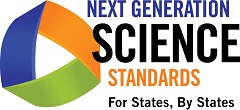
Promising policies lead to quality education.
In California, new educational policies shape both what and how students will learn.
Policy changes involve the redesign of school accountability systems, teacher credentialing requirements, state and school facilities bond issuance, and district budgeting reform. Meanwhile, new academic standards in math and science are also bringing about curriculum and assessment revisions.
The Foundation seeks to ensure that adopted policies best meet the needs of students and their educators. To this end, the Foundation works with partners to bolster the resources that inform decision makers, support new math and science standards, and improve the quality of student learning both in- and out-of-school.
STRATEGIES
Advocating for Public Policy
The Foundation envisions California’s education policies providing a comprehensive, informed approach for supporting K–12 teaching and learning.
The Foundation invests in local policy networks, advocates, and organizations. This approach centers on supporting key actors to engage in thoughtful policy practices, and advancing policy conversation and action through the following methods:
- Research and analysis. Assessing policy and incorporating components that advance the Foundation’s focus areas.
- Network convenings. Supporting peer networking and convenings to align advocacy positions across stakeholder groups (superintendents, parents, businesses, etc.).
- Stakeholder education. Helping advocates and education groups inform stakeholders on critical issues and approaches.
- Tracking policy implementation. Monitoring the adoption of new policy measures and advancing them as necessary.
- Systems development. Providing technical assistance and access to experts who aid public institutions in implementing policy.
GRANTEE HIGHLIGHTS

Implementing the Next Generation Science Standards
The Next Generation Science Standards (NGSS) were released in April 2013 after years of development by 26 lead states and a broad-based network of science, technology, engineering, and math (STEM) experts from business and industry, academia, and the scientific community. The standards were adopted by the state of California in November 2013. These standards represent the scientific and education communities’ best and most current understanding of what K–12 students need to know and be able to do in science to be prepared for success in college and the workforce and for life in the 21st century.
Achieve is working with California and other states that have adopted the NGSS to develop tools and resources for quality implementation of the standards. This includes the development of 1) the NGSS Network – a collaborative group of NGSS adopter states working together on common issues; 2) tools such as the Educators Evaluating Quality Instructional Products (EQuIP) and Publisher’s Criteria; and 3) technical assistance to the California Department of Education in the implementation of the NGSS.
Achieve is also a partner with the WestEd K-12 Alliance in supporting eight California school districts identified as fast implementers of the NGSS starting in fall 2014.



